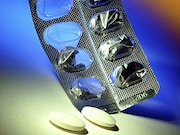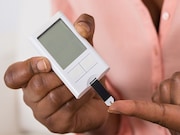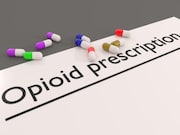Work Burnout, Gaming Addiction Classified as Diseases by WHO
Both conditions will be included in the 11th edition of the WHO International Classification of Diseases
Statin Use With Colorectal Cancer Lowers Risk for Early Death
Taking statins before or after cancer diagnosis cuts all-cause and cancer-related deaths
Intracranial Hemorrhage Risk Up With Low-Dose Aspirin
Caution advised for low-dose aspirin in individuals without symptomatic cardiovascular disease
Poor Glycemic Control Linked to Sarcopenia in T2DM
Correlation independent of major covariates including anthropometric factors and diabetes duration
American Psychiatric Association, May 18-22
The 172nd American Psychiatric Association Annual Meeting The annual meeting of the American Psychiatric Association was held from May 18 to 22 in...
Digestive Disease Week, May 18-21
Digestive Disease Week 2019 The annual Digestive Disease Week, sponsored by the American Association for the Study of Liver Diseases, American Gastroenterological Association,...
U.S. Lawmakers Say WHO Opioid Guidelines Too Lax
Organization claims guidelines influenced by people with financial ties to Purdue Pharma
High-Deductible Health Plans May Be Harmful for Patients With COPD
Individuals with HDHP more likely to report forgoing care due to costs, cost-related nonadherence
Decrease in PM2.5-Related U.S. Mortality From 2010 to 2017
During the same period, ozone-related mortality remained mainly unchanged
Blood Donor Screening Data IDs Familial Hypercholesterolemia
Highest estimated prevalence of FH seen in young versus older donors, and in men versus women


















